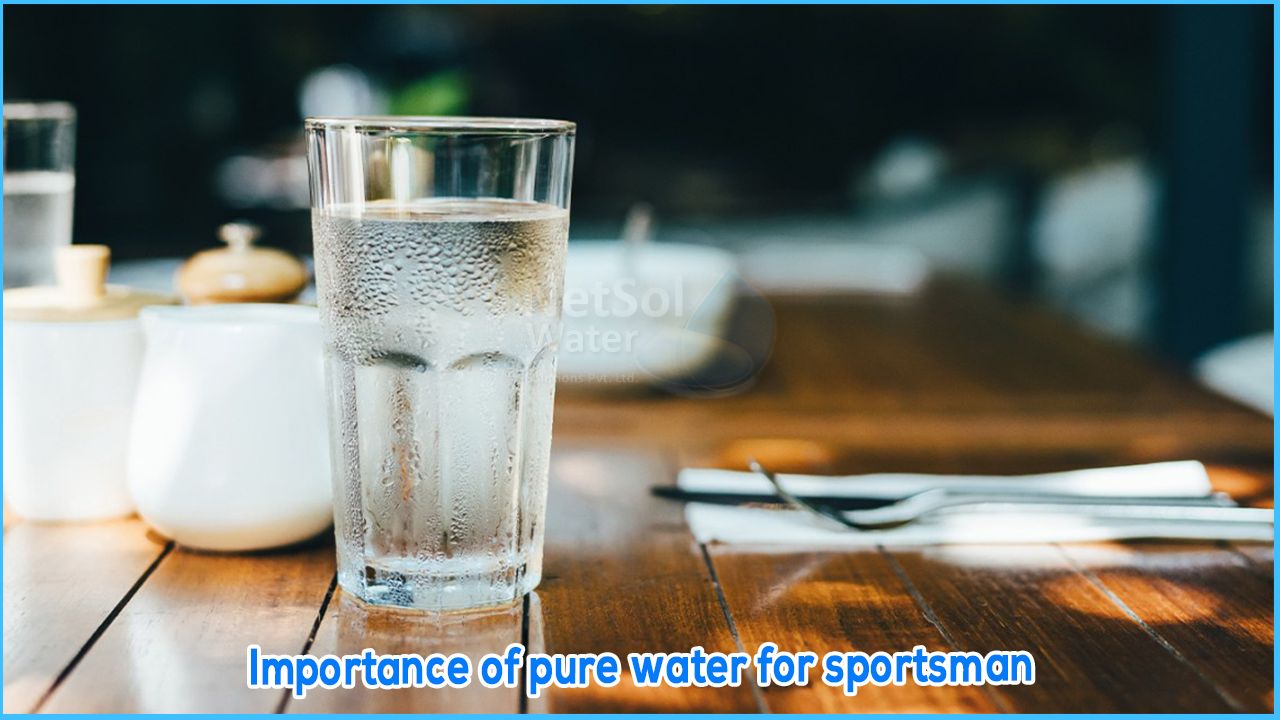Importance of pure water for sportsman
Only a small number of athletes and experts are aware that water plays an important role in sports. If a list of nutrients were compiled based on biological sense, water would be at the top of the list. Water is constantly lost through the respiratory system, the skin, urine and faeces, physiological body cooling, and sweating. Sweating can cause a loss of up to 5 litres of body fluids during physical activity, which is approximately 50 times greater than at rest, and exhaled air causes a loss of three times more water than rest. All of the lost water is compensated in the amount lost. This is the athletes' legality, without which it is impossible to achieve superior results. It is therefore critical that the fluid equilibrium in competitors be even. The precise required amount of fluid is still up in the air effectively, by controlling the volume of daily pee yield, which should be around 1litre. Following the completion of the activity, there is a regular maximum requirement for pure water. It is critical to take a specific amount of pure water during exercise demonstrations, especially if they are long-distance. At the end of the activity, pure water should be recovered first, followed by minerals.
PHASES OF WATER INTAKE IN ATHLETES
Athletes’ liquid intake is linked to adequate fluid intake before, during, and after competition. There are four stages of liquid (water) consumption:
1. PRE-HYDRATION: It is critical for maintaining internal heat levels during competition and avoiding weight loss. Additional pure water should be consumed two days before the competition. Then, 4 hours before the opposition, pure water admission should begin at regular intervals, with the last piece required no less than 20 minutes before the opposition, as this much time is required for unadulterated water to be released from the stomach. Pre-hydration success is strongly linked to taking a few supplements during this period, for example, supplements containing around 7% carb, as well as limited amounts of potassium, magnesium, phosphate, and sodium, which have been shown to improve fluid retention. To begin the competition, the competitor must allow 1000 to 1200 ml of pure water.
 2. HYDRATION: Pure water should be consumed before, during, and after physical activity, and should be consumed almost continuously. If adequate hydration of the body is not provided prior to training or competition, the gap cannot be compensated by drinking pure water during training or competition.
2. HYDRATION: Pure water should be consumed before, during, and after physical activity, and should be consumed almost continuously. If adequate hydration of the body is not provided prior to training or competition, the gap cannot be compensated by drinking pure water during training or competition.
3. DEHYDRATION:Dehydration is caused by sweating as a result of high temperature, decreased blood volume occurs, and all of this occurs at the expense of extracellular space in thermoregulation, resulting in circulatory disorders. Water exits the body via evaporation of the skin, evaporation of the lungs, or the secretion of highly diluted urine. In all of these cases, water leaves the extracellular fluid, but some cellular water also passes through osmosis into the extracellular space, thereby equalizingextracellular and cell osmolarity. Dehydration is the end result. During the competition, it is critical that 100-200 ml of pure water be consumed every 15-20 minutes.
4. REHYDRATION: Rehydration is appropriate when the following conditions are met: capacity of muscle glycogen and unadulterated water utilization is in something like the same or greater amounts as misfortune, depending on the work. Fluids lost during work are expected to be replaced. In cases of excessive sweating, daily water requirements can rise to a few litres. There are a few methods to determine the absence of water, and one of them is to repay each kilogram of body weight loss with 1litre of pure water.
CONCLUSION
During physical exertion, the body sweats profusely, losing vitamins and minerals. Small amounts of salt could be added to the drink used during training or the food eaten after physical activity to increase rehydration. Various substances in the body are restored during recovery time, based on the principle that primary decomposition processes still induce or enhance re-synthesis reactions. Muscle contraction is the most efficient pump for blood supply, therefore, Pure Water should be consumed in small amounts while walking after a strenuous effort.
To avoid dehydration in athletes, introduce a water plant from a reputable brand. RO water plant from NETSOL removes broken down contaminants and microorganisms, making it completely safe to use for sportsman.



